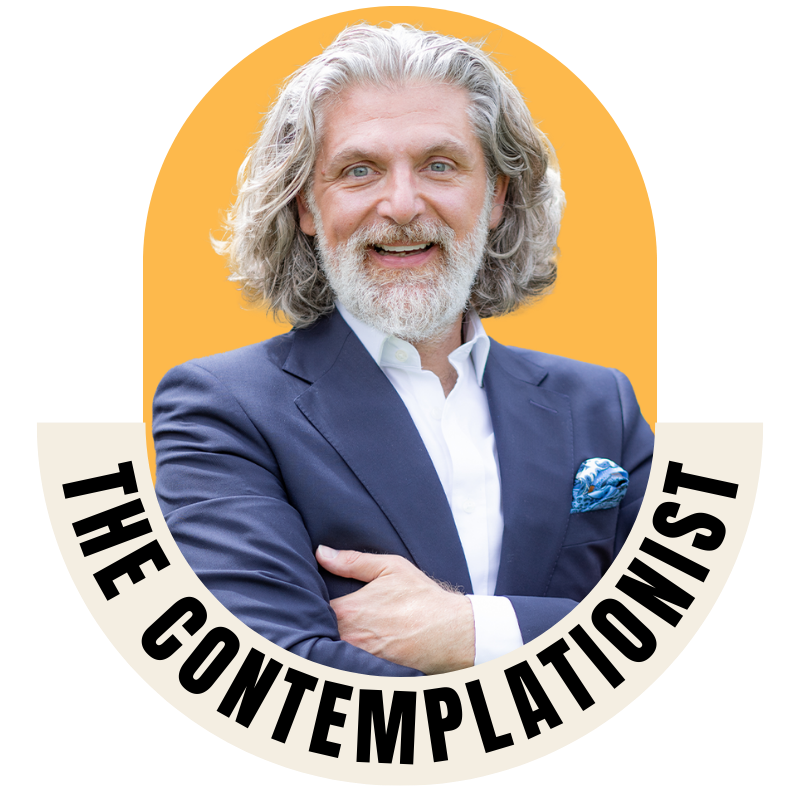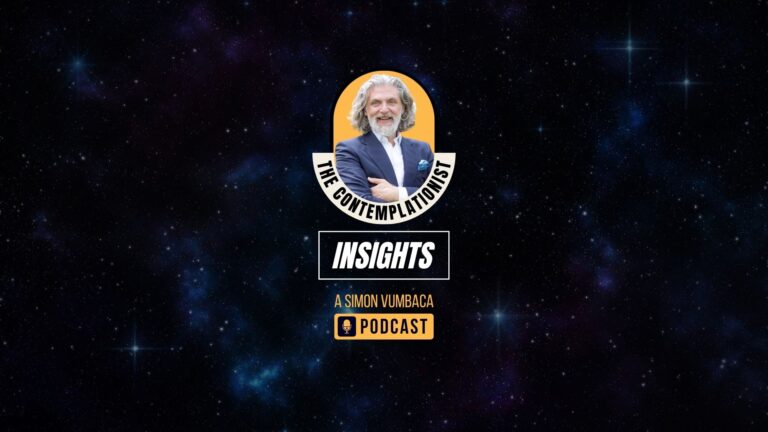In a world where seriousness seems to be a badge of honour—whether at school, work, or in our daily lives—we are constantly told to be serious to achieve success, avoid failure, and maintain a sense of responsibility. But where does this deep-rooted belief in the need for seriousness come from? And is it really helping us achieve better outcomes, or is it just an unnecessary burden? Let’s face it, life has turned into one giant “serious” memo. We often treat seriousness as the default mode, but does this mindset lead to happier, more fulfilling lives? What if all this seriousness is, well, seriously overrated? Through thoughtful analysis, the author challenges this notion, questioning whether being “serious” is just a convenient yet outdated social expectation.
This Contemplationist article takes a playful jab at our obsession with seriousness, exploring how it’s more of a social habit than a necessity. Using humour and relatable examples, such as the serious expressions in early photographs due to technical limitations, it highlights how seriousness may not always reflect our true emotions. Seriousness is often confused with thoughtfulness, but in reality, one can be thoughtful and joyful without sacrificing depth or meaning.
With philosophy and a dash of humour, the piece argues that we’ve confused seriousness with thoughtfulness, relying too much on others’ validation. Let’s be real: thinking deeply about life doesn’t require a frown or a furrowed brow. Being wise doesn’t require being serious either. You can be wise and happy because you don’t need to look like you’re solving the world’s problems 24/7 to be thoughtful. The essay concludes with a reminder that wisdom need not wait for old age—nor for a serious expression.
There is a belief that we need to be serious. At school, we are told to be serious students, serious about our studies, and to get serious grades so we can achieve serious academic goals. In business, we are taught to get serious to avoid serious consequences, to engage in serious business that brings serious gains, allowing us to seriously impact the market and become serious contenders to make serious money by claiming serious market shares. In everyday life, we are told to be serious about self-care to avoid serious health issues, to ensure we get into serious relationships, or else we might end up in a serious breakdown. You get the idea. In fact, when someone wants to convince us of the importance of something, they often say, “Seriously now,” or, “Let’s get serious,” or, “This could seriously improve…”.
Important things must be treated seriously, and some matters are entirely serious by nature, such as the economy, markets, politics, our jobs, and even religion. These are default serious matters! We are taught from a young age that the most serious thing that can happen to us is death.
But where does this serious belief come from? Looking back, it seems that the degree of seriousness is deeply ingrained in our beliefs and environment.
So, let’s start at the beginning: What does the word “serious” actually mean?
According to the Merriam-Webster Dictionary, it means “thoughtful or subdued in appearance or manner” and “requiring much thought or work.” The Oxford Dictionary defines it as “thinking in a careful, solemn (solemn = performed with dignity) way” and “needing or intended to be thought about carefully, not just for pleasure.”
The Oxford English Dictionary online also tells us:
- The adjective “serious” has 80 occurrences per million words in modern English. “Seriously” has 30 occurrences per million words in modern written English.
- By comparison, “happy” has 60 occurrences per million words in modern written English. “Happily” has 7 occurrences per million words, “joy” has 30 occurrences, and “joyful” has only 2 occurrences per million words in modern written English.
It would seem we are more likely to be serious than happy, and certainly more than joyful! Essentially, the way we communicate indicates we shouldn’t waste our time on non-serious things—or if we do, we don’t like to write or talk about it!
Yet, seriousness and being serious is something we are asked to embrace regularly. But what exactly is it? Is seriousness an emotion? According to a recent article titled The 6 Types of Basic Emotions and Their Effect on Human Behavior, seriousness is not a basic emotion. “Happy” is! However, “happy” is surrounded by sadness, fear, disgust, anger, and surprise as basic emotions—not exactly a joyful bunch! But serious is not considered a basic emotion.
Maybe we could clarify things by replacing the word “serious” with its definition, “thinking in a careful way” (we’ll use “thoughtful” for simplicity). Does this help?
Let’s apply it to our earlier expressions: At school, we are told to be thoughtful students, thoughtful about our studies, and to get thoughtful grades (whatever that means!) so we can achieve thoughtful academic goals. This sort of works.
In business, we are told we need to be thoughtful to avoid thoughtful consequences, to engage in thoughtful business that gives thoughtful gains, to thoughtfully affect the market, and become a thoughtful contender to make thoughtful money by dictating thoughtful market shares. This, in my opinion, starts to show the cracks and inconsistencies in the overuse of the word “serious.” What is a thoughtful business? Have you tried doing business without thinking? And what are thoughtful gains? The opposite of accidental gains? A thoughtful contender is someone who thinks (…)? And so on.
In everyday life, we are told to be thoughtful about self-care to avoid thoughtful health issues, ensure we get into a thoughtful relationship, or else end up in a thoughtful breakdown. Now, what is a thoughtful health issue? One that you need to think about in advance or when it’s already there? Do we need to think about it all the time? What is a thoughtful breakdown? One we had planned? You can see how the confusion starts to create a sense that it’s better to be serious than to risk something we don’t understand.
The other side of the serious mystery is why do we assume that if one is joyful, one cannot be thoughtful? Can’t thoughtful matters be dealt with some joy? Can a decision made after careful thought also contain happiness, joy, disgust, or fear? Can we be thoughtful about joy and still reach a positive outcome in our actions or decisions?
Some may see this as mere semantics, but it’s, actually, about the proper use of the language we rely on to communicate with each other—a language that has become the foundation for our goals, ambitions, aspirations and common understanding.
Take early photographs, for example. They almost never contained smiles or displays of happiness. People were expected to look serious, solemn, and not smile. According to a 2016 Time magazine article, this was for a variety of reasons:
- Technically, it took several seconds to take a picture, making a smile difficult to maintain.
- Early photos were regarded as portraits, like solemn paintings, and were rare enough to warrant a formal, serious pose, continuing the tradition of church paintings.
- Dental hygiene wasn’t exactly advanced at the time (though that’s debatable to be a valid reason!).
What’s fascinating is that two of the three reasons why we believe the past was so serious have nothing to do with feelings or state of mind. It was simply out of convenience. Yet, today’s society is said to be far more thoughtful (serious)! That certainly doesn’t reflect in our modern photos, where smiles and teeth are essential. In fact, without a smile, we retake the photo or don’t post it at all!
So, what are we really serious about? Are we achieving better outcomes by being serious? What occupies our thoughts in such a solemn manner that we must avoid joy or happiness? Could it be that living in a state of fear and anger doesn’t work? Absolutely. But seriousness is not really an emotion.
Could it be that we think being serious works because we believe we will be taken at better value by the people and the world around us? Perhaps it’s a self-preservation mechanism—a way to project our importance and authority in new surroundings. It is my belief that is exactly so.
When we begin our journey, we tend to know what is right and wrong for us. When we find ourselves in unfamiliar surroundings—schools, universities, new towns, new ventures—we encounter new tribes and realities, cultures, and groups with their own beliefs. We seek safety in these environments. When joining a new company, for example, we adapt to their “culture.” The more we want to fit in, the more we modify our behaviour. Over time, our original vision becomes distorted, and we accept a new norm: seriousness of purpose becomes a self-imposed standard. We even start judging those who don’t impose the same level of seriousness on themselves, undermining their ideas based on our own projected limitations.
We got so used to the comfort of the lie of what we have become, that our original truth becomes uncomfortable.
If we were clear about who we are and limited our need for external validation, we could be thoughtful and joyful. Rarely serious. We would be balanced in our purpose-driven actions, aligned with our values and own universal truth. Moreover, if we weren’t afraid of who we are, no one could use that against us. We could be thoughtful, factual, precise, and proactive in our actions without needing to be “serious.” This concept appears in many philosophies and spiritual practices.
CONCLUSION
In the Guanzi Essay on Early China (Guanzi, Vol 2, Rickett, 40), it is reported
“No one seeks their reflection in flowing water; they seek it in still water”. “Do not let things confuse the senses, and do not let the senses confuse the mind.”
As The Contemplationist, I embrace this view and would add my own, as I already stated:
“Desires, greed or self-interest, and the paired polar emotions of worry and joy, delight and anger are preventing one from keeping the waters still and oppose the cultivation of balance and levelness, preventing one’s alignment between purpose driven actions and one’s universal vision and truth. To be wise and sage, one must not wait old age; One must balance and level self, actions, purpose and one’s universal truth, with matching factual actions aligned with it.” (Simon Vumbaca, The Contemplationist)
So, for your sake, the next time you find yourself being overly serious or asking others to be serious, stop for a second. Replace the word “serious” with “thoughtful” in your sentences. Ask yourself if the facts and actions match. Try to see the humorous or happy side of things.
Let’s be thoughtful, factual, precise, and balanced, happy, and true to our universal values! No need to be serious all the time! Remember: a serious player isn’t the one who plays all the right notes the right way—it’s the one who knows why the right way is right.






